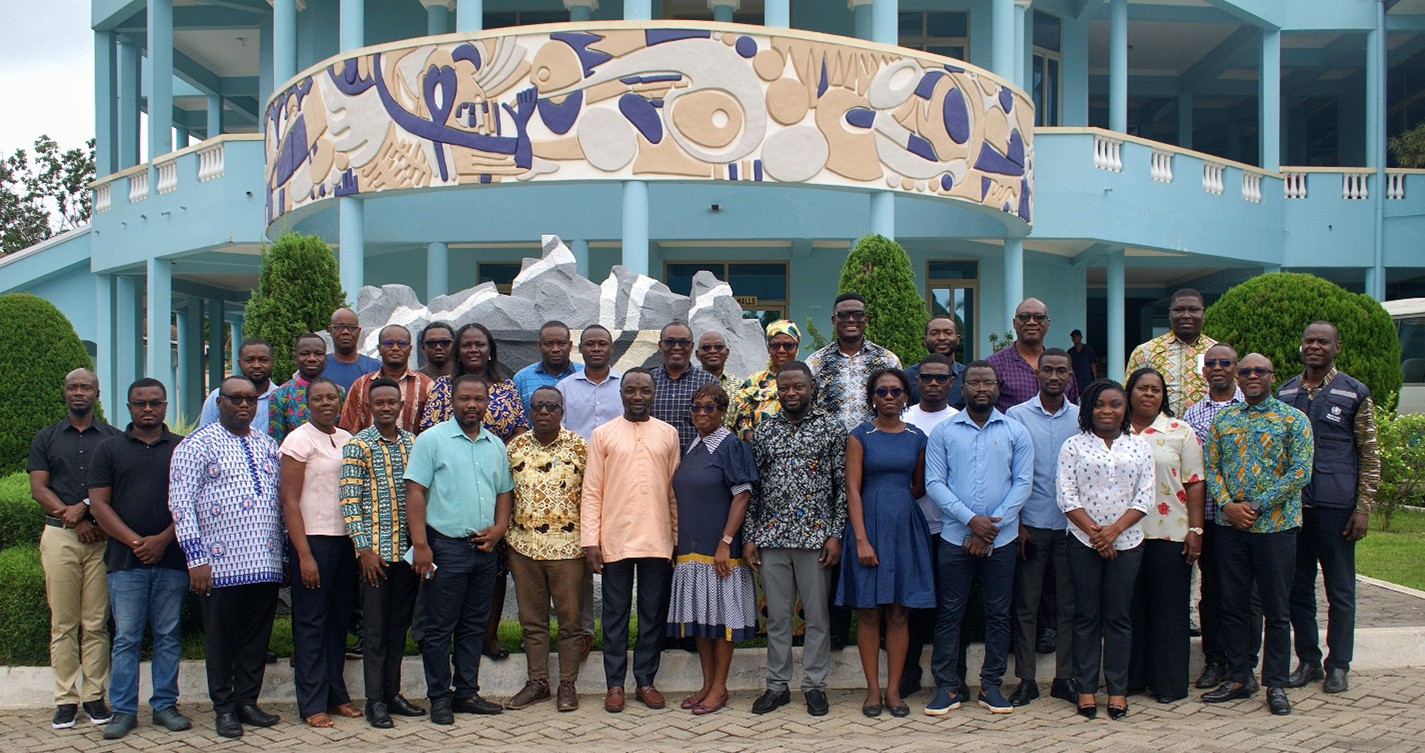
As part of national efforts to strengthen Ghana’s laboratory systems and accelerate progress toward Universal Health Coverage (UHC), the Centre for Health System Strengthening (CfHSS) was invited by the Ghana Health Service (GHS) for a five-day stakeholder and implementing partner meeting from October 13–17, 2025 to support the design and implementation of the Integrated Specimen Referral System (ISRS).
The ISRS aims to harmonize and optimize specimen transport across all disease programs, including HIV, tuberculosis, malaria, and other priority conditions, while improving coordination, turnaround time (TAT), and sample quality throughout the testing process.
Other representatives included the National AIDS Control Programme (NACP), National Public Health Reference Laboratory (NPHRL), Council for Scientific and Industrial Research (CSIR), Medical Laboratory Scientists (MLS), African Field Epidemiology Network (AFENET), and Regional Health Directorates (RHDs).
CfHSS was represented by the Programs Director, Mr. David J. Sambian and the Programs Coordinator, Mr. Ebenezer Kojo Addae, who gave a presentation on a web-based application designed to enhance ISRS implementation in Ghana. The system, currently being piloted in the Northern Region, provides end-to-end tracking of sample movement, from collection to testing and results reporting, through digital dashboards, barcoding, and automated notifications.
Other key presentations highlighted the current state of sample transport in Ghana, lessons learned from Zimbabwe’s courier-based system, and a proposed ISRS implementation plan emphasizing sustainability, stakeholder coordination, and digital integration.
The discussions showed the need for a coordinated and sustainable ISRS, adaptable transport modalities, and strengthened courier systems to ensure continuity beyond donor funding.
CfHSS remains committed to supporting national efforts to strengthen laboratory networks, promote efficiency, and enhance disease surveillance and response systems through digital innovation and public health partnerships.

